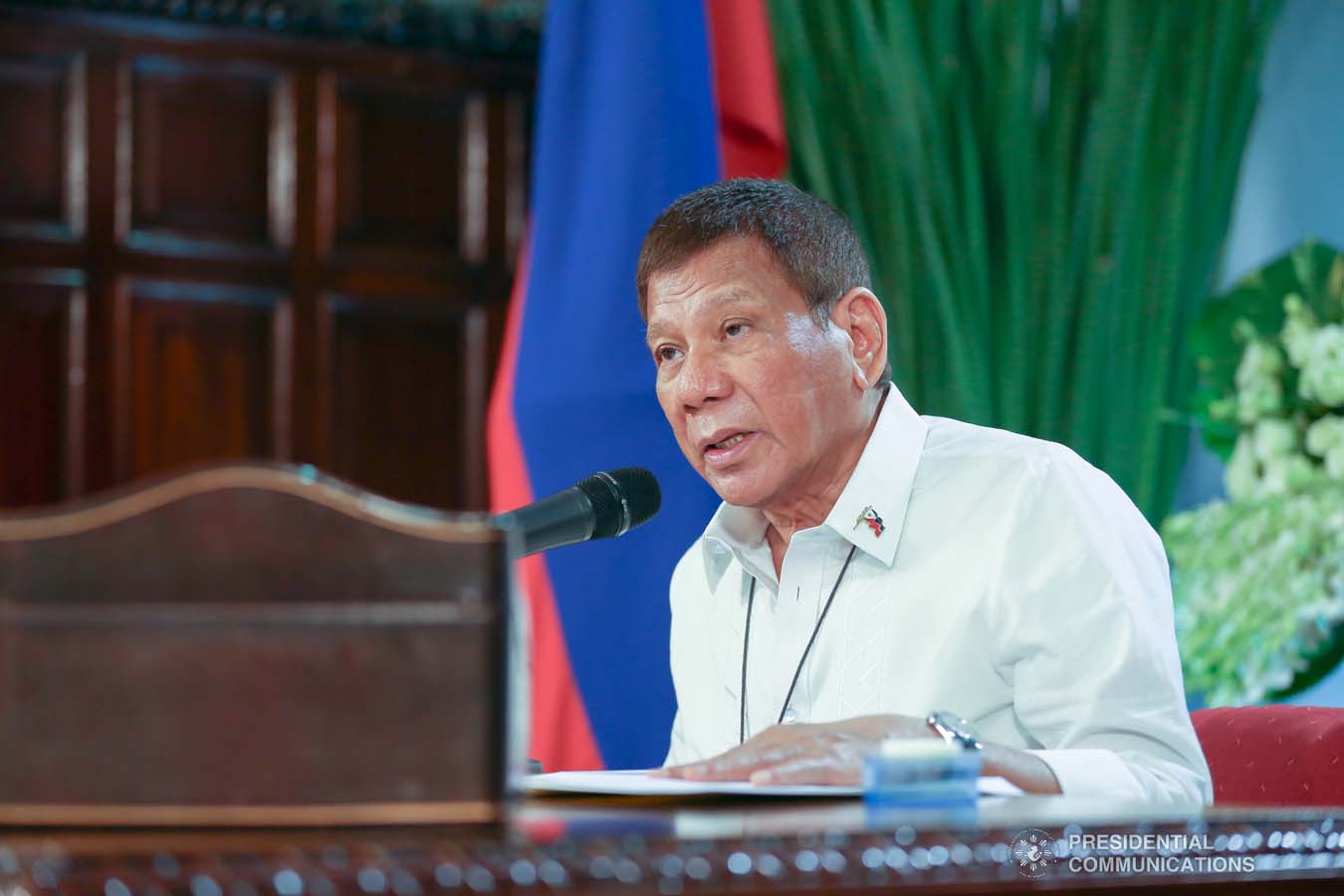Headline
Threat to scrap VFA not blackmail, but independent foreign policy

FILE: President Rodrigo Roa Duterte at the Malacañang Golf (Malago) Clubhouse in Malacañang Park, Manila on November 30, 2020. KARL NORMAN ALONZO/ PRESIDENTIAL PHOTO
MANILA – President Rodrigo Duterte is not “blackmailing” the United States, the Philippines’ longtime ally, in a bid to secure US-made vaccines for the country but is just exercising independent foreign policy, Malacañang said on Monday.
Presidential Spokesperson Harry Roque made this comment after Senator Panfilo “Ping” Lacson called out Duterte for threatening to end the Visiting Forces Agreement (VFA) if the US fails to supply 20 million doses of US-made vaccine to the Philippines by January next year.
Lacson described Duterte’s pronouncement as “unfortunate”, saying there could be a “more diplomatic” way of asking a long-time ally to help the Philippines secure vaccines without sounding like the government is “blackmailing our way into it.”
Roque disagreed with Lacson, adding that the President, as the chief architect of foreign policy, knows what is best for the country.
“Wala pong masama diyan, hindi po ‘yan blackmail. ‘Yan po yung ibig sabihin ng independent foreign policy. Hindi po tayo sunud-sunuran, hindi po tayo didiktahan ng kahit sino (There’s nothing wrong with what he said, it’s not blackmailing. That is what it means to exercise independent foreign policy. We are not slaves, we cannot be dictated by anyone),” he said in a Palace press briefing.
He said Duterte proved his commitment to the country’s friendship with the US after granting absolute pardon to US Marine Lance Cpl. Joseph Scott Pemberton last September. Pemberton killed Filipino transgender woman Jennifer Laude in 2014.
Duterte also showed this commitment by allowing the extension of the suspension of the VFA abrogation for another six months last November, he added.
However, Roque said that it seemed that granting absolute pardon to Pemberton and extension of the VFA abrogation were not enough reasons for the US to supply the Philippines with their vaccines.
“Hindi ata naging sapat ‘yun para tayo ay mabigyan ng bakuna kaya ang opinyon ko lamang ngayon, sinabi nga ng Presidente na pati VFA kakanselahin niya kung hindi tayo bibigyan ng bakuna (It probably wasn’t enough reason for us to be supplied with vaccines that’s why my opinion now is, the President said he would scrap the VFA if we won’t be supplied with vaccines),” he said.
Roque said Duterte’s threat to scrap the VFA showed that he was demanding the same commitment from the US in terms of supplying the Philippines with vaccines.
“Ang sinasabi ng Presidente, dahil tayo’y magkakaibigan, magtulungan tayo. Kailangan namin ng vaccine, may vaccine kayo, bigyan niyo kami. Kinakailangan niyo ang aming teritoryo para sa Visiting Forces Agreement, sige ibibigay namin ‘yan. Pero kung hindi niyo naman kami bibigyan ng bakuna e di dun kayo mag-VFA sa mga bansang binigyan niyo ng bakuna (What the President is saying, because we’re friends, let’s help each other. We need a vaccine, you have a vaccine, supply us with a vaccine. You need our territory for the Visiting Forces Agreement, okay we’ll give it to you.
But if you won’t supply us with vaccines, make your VFA with countries you supplied vaccines with),” he said.
He said that if the US could not supply the country with vaccines, it is better off terminating the VFA for good.
“Tama naman na sabihin ni Presidente enough is enough. Walang bakuna, walang VFA (It’s correct for the President to say enough is enough. No vaccine, no VFA),” he said.
The VFA, a military pact signed between the Philippines and the US in 1998, allows American troops who are participating in joint military exercises to visit Manila without a passport and visa.
In February, Duterte scrapped the VFA over its alleged inequities in its treaty provisions and the US’s alleged assault on the country’s sovereignty and disrespect for its judicial system.
He later decided to suspend the planned revocation of the military pact with Washington DC last June and again in November.
The Philippines supposedly missed the chance to receive the Covid-19 vaccine from US pharmaceutical company, Pfizer, due to the alleged failure of Health Secretary Francisco Duque III to submit the confidentiality disclosure agreement for the purchase of the vaccines.
Some lawmakers have claimed the country would have secured the Covid-19 vaccines from Pfizer as early as January next year had Duque worked on the document.





















